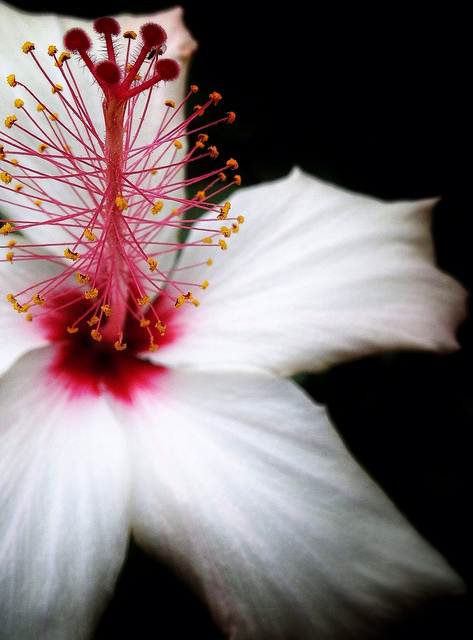Ode to Hibiscus Tea
Oh, how I love a tall glass of cool, refreshing jamaica on a sunny afternoon. It really improves my quality of life.
This ubiquitous, delicious and healthy refreshment, known here in Guatemala as rosa de jamaica (or just “jamaica”) is simply hibiscus tea.
It can be served hot, but is much more commonly offered as a cold drink alongside lemonade on the menu. In other parts of the world, it may be called sorrel, roselle or red zinger.
In the country of Jamaica, it’s a Christmas tradition to drink the flavorful, magenta-colored tea with fruit cake or potato pudding. Here in Central America, jamaica is a popular beverage all year round.
The hibiscus flower, like the coffee tree, is native to west Africa; both crops obviously flourish in the tropical Guatemalan ecosystems as well. I suggest looking for dried hibiscus flowers, which are usually sold in bulk in the supermarket, rather than buying a box of tea bags.
Hibiscus has a strong, sour taste due to its natural citric acid, so it does need to be sweetened. I prefer using local honey or a simple syrup made from brown sugar and boiling water. Be sure not to use too much sweetener though. In my opinion, many restaurants serve their hibiscus tea overly sweet. Spice it up with cloves, cinnamon, mint leaves or ginger as desired.
Jamaica is not only delicious, it is also super good for you.
It is ranked number one on the list of drinks with the most antioxidants.
According to nutrition expert Dr. Michael Greger:
“Hibiscus does appear to have anti-inflammatory properties, help lower high blood pressure, help lower uric acid levels in gout sufferers, and improve cholesterol and triglyceride levels in pre-diabetics and diabetics. Like chamomile, hibiscus tea also appears to inhibit the growth of human cancer cells in a petri dish.”
Apparently, even the meat industry is trying to get in on the deal by adding hibiscus to burgers.
Hibiscus is a medicinal plant that can be used for treating colds, heart diseases, upper respiratory tract pain and inflammation, fluid retention and stomach problems. It’s also useful for inducing an appetite, dissolving phlegm and as a gentle laxative and diuretic.
Though not many studies have been done on hibiscus compared to, say, green tea, some researchers have found that hibiscus may decrease stomach, intestinal and uterine spasms and work like an antibiotic to kill bacteria and worms. However, due to its high content of dietary manganese, it is recommended that adults weighing about 150 pounds drink no more than a quart of hibiscus tea per day.
Hibiscus tea is not recommended for women who are pregnant or breastfeeding! No one ever told me that, so I drank my fair share throughout my pregnancy and breastfeeding stage. Fortunately, my two-year-old daughter seems to have turned out okay. She has already inherited her parents’ love of rosa de jamaica.
Love elephant and want to go steady?
Sign up for our (curated) daily and weekly newsletters!
Author: Michelle Margaret Fajkus
Editor: Renee Picard
Photo: Ryan Vaarsi at flickr







Read 2 comments and reply